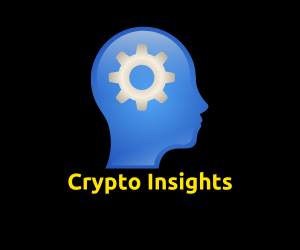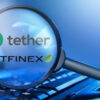
In an era where financial power has long been concentrated in the hands of central banks and traditional institutions, decentralized finance (DeFi) offers a refreshing alternative. Built on blockchain technology, DeFi is not just a fleeting trend; it’s a revolution that seeks to democratize finance by giving individuals across the globe control over their assets without relying on intermediaries like banks or governments. But what does this really mean for the average person?
The Power of Decentralization
To grasp the impact of decentralized finance, we first need to understand centralization. In traditional financial systems, central banks have the power to print money, set interest rates, and regulate the supply of credit. While these institutions aim to stabilize economies, they often do so at the expense of individual autonomy. The 2008 financial crisis, for instance, exposed the vulnerabilities of these centralized systems, leaving millions of people with reduced wealth and fewer options for financial recovery.
DeFi flips this model on its head. Instead of relying on a central authority to manage the system, DeFi operates on decentralized networks, primarily using blockchain technology. In this system, the control over financial transactions, credit, and assets lies in the hands of the users themselves. With DeFi, there is no need for a bank to approve a loan, a government to regulate currency, or an intermediary to take a cut of your transactions.
Empowering Global Users
DeFi’s most significant impact is its ability to reach those who have been historically underserved by traditional financial systems. According to the World Bank, over 1.7 billion people globally remain unbanked, meaning they do not have access to basic financial services such as savings accounts, loans, or even the ability to send and receive money. DeFi provides these individuals with a gateway into the global economy.
Using nothing more than a smartphone and an internet connection, anyone can participate in decentralized finance. This is particularly beneficial in developing countries, where high banking fees, limited access to financial infrastructure, and unstable currencies have been significant barriers to economic growth. DeFi offers these users an inclusive financial system that is more affordable, transparent, and accessible than ever before.
Cutting Out the Middlemen
One of the core principles of DeFi is disintermediation—the removal of intermediaries like banks, brokers, and payment processors. In traditional systems, these middlemen are essential to facilitating transactions and ensuring security. However, they also introduce inefficiencies, such as delays, additional costs, and even the risk of corruption or fraud.
DeFi platforms leverage smart contracts—self-executing contracts with the terms of the agreement directly written into code. These smart contracts automate the process of trust, executing transactions based on predetermined conditions without the need for human oversight. This means lower fees, faster transactions, and less room for error or manipulation.
For example, if you want to borrow money in a traditional system, you would go through a credit check, a lengthy approval process, and pay interest to the bank. In DeFi, you can instantly borrow funds by using your existing cryptocurrency holdings as collateral, all without a credit score or lengthy paperwork.
Financial Sovereignty and Transparency
Decentralized finance also grants users unprecedented financial sovereignty. In centralized systems, your access to funds can be restricted, seized, or frozen by governments or institutions, often without due process. With DeFi, individuals truly own their assets, and access cannot be denied. Your digital wallet is your gateway to the DeFi world, and no one can prevent you from accessing your funds or participating in the system.
Additionally, DeFi systems operate on transparent, open-source code. Anyone can audit the code that governs transactions, ensuring accountability and reducing the risk of corruption. This stands in stark contrast to the opaque operations of many traditional financial institutions, where fees, policies, and decision-making processes are often hidden from public scrutiny.
Challenges and the Path Ahead
While decentralized finance holds tremendous promise, it is not without its challenges. Security risks, such as smart contract bugs or hacking attacks, remain a concern. The nascent DeFi ecosystem is also less regulated than traditional financial systems, which can expose users to fraud or malicious actors. However, as the technology evolves, solutions to these problems are already being developed, including insurance protocols and enhanced security measures.
As DeFi continues to grow, its ability to empower global users will only expand. By breaking free from the control of central banks and traditional institutions, decentralized finance offers a future where everyone has the opportunity to participate in and benefit from the global economy.
Conclusion
Decentralized finance represents a seismic shift in the way we think about money, control, and access. By leveraging blockchain technology, DeFi is empowering individuals across the globe to break free from the constraints of traditional financial systems. Whether it’s giving unbanked populations access to financial services or providing individuals with more control over their assets, DeFi is paving the way for a more inclusive, transparent, and equitable financial future.
As more people become aware of DeFi and its potential, the traditional boundaries of finance will continue to blur, opening up exciting possibilities for innovation and economic freedom. The question is not whether decentralized finance will transform the world—it’s already doing that—but how quickly it will become the new normal for billions of people worldwide.










